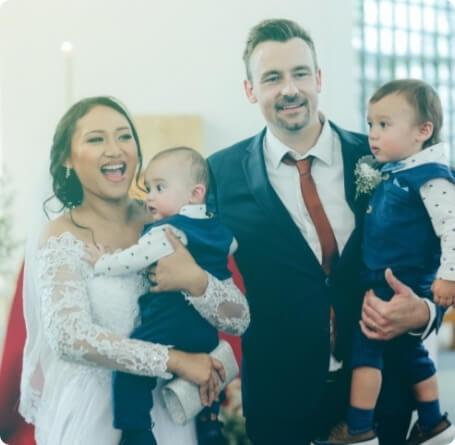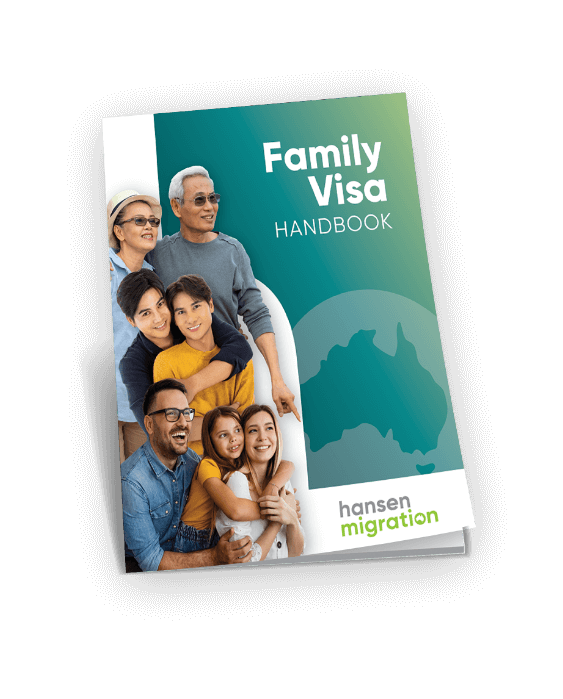- A natural (biological) child of the eligible parent; or
-
An adopted child or a step-child of the eligible parent within the meaning of the Migration Act 1958; or
-
A child conceived through an artificial conception procedure (ACP) as provided for in the Family Law Act 1975; or
-
A child born under surrogacy arrangements, where parentage has been transferred by court order under a prescribed state or territory law.
How ‘old’ can a child be?
Regardless of the type of Child Visa you’re applying for, the Department of Home Affairs has set specific guidelines on what age will make the child eligible for the visa.
The child must be:
-
Under 18 years;
-
A full-time student aged over 18 and under 25 and financially dependent on the parent; the child cannot be married, engaged to be married or in a de facto relationship or;
-
Over 18 and unable to work due to a disability.
Now let’s look at the types of Child Visas available. To begin with, we’ll start with the Child Visa (subclass 101).
Child visa (subclass 101)
The Child Visa (subclass 101) is a way for you to sponsor your child if you are an Australia citizen, Australian permanent resident or an eligible New Zealand citizen. With the Child Visa (subclass 101), the child you’re wishing to sponsor must be living outside of Australia at the time of lodging the application, and at the time the final decision is made.
Upon being successfully granted the Child Visa (subclass 101), your child will be eligible to:
-
Live in Australia permanently
-
Work and study in Australia
-
Apply for Medicare
-
Travel to and from Australia
-
Apply for Australian citizenship (once they meet the citizenship requirements)
The majority of Child Visas (subclass 101) are processed within 11 – 18 months, so it’s important to keep this in mind as the child must be located outside of Australia not only when the application is lodged but also for the final decision to be made.
Child visa (subclass 802)
The Child Visa (subclass 802) has similar requirements and benefits as seen in the Child Visa (subclass 101). The major difference between the two visas is that the Child Visa (subclass 802) is a means of allowing a child to stay in Australia on a bridging visa while their application is being processed. For that reason, it’s a required that the child be physically located in Australia when the application is lodged, and for the final decision to be made.
The entitlements of the Child Visa (subclass 802) are the same as above:
-
Live in Australia permanently
-
Work and study in Australia
-
Apply for Medicare
-
·Travel to and from Australia
-
Apply for Australian citizenship (once they meet the citizenship requirements)
When submitting an application for this type of visa, it’s a requirement that the sponsoring parent is an Australia citizen, Australian permanent resident or an eligible New Zealand citizen. The visa processing times for this visa is generally between 13 – 14 months.
Dependent Child visa (subclass 445)
A Dependent Child Visa (subclass 445) is means of sponsoring your child if you currently hold a temporary Partner Visa (subclass 820 or subclass 309).
Slightly different to the above two visas, the Dependent Child Visa (subclass 445) will allow the child to:
-
Move to or stay in Australia until a decision is made on their parent’s permanent partner visa application
-
Be added to their parent’s permanent partner visa application
-
Travel to and from Australia with the sponsoring parent
-
Work and study in Australia
It’s also important to note that the location of your child at the time of the application will not affect the process of lodging the application. Instead, it’ll just determine where the child must be located when the Dependent Child Visa (subclass 445) is granted.
Other options available for applying
If you are located in Australia or have plans of migrating to Australia you may be able to include your child as a secondary applicant on your visa application. This option saves a lot of time and money.
If you’re still unsure about which Child Visa is right for your child, feel free to seek some free advice by clicking here to book a consultation.









